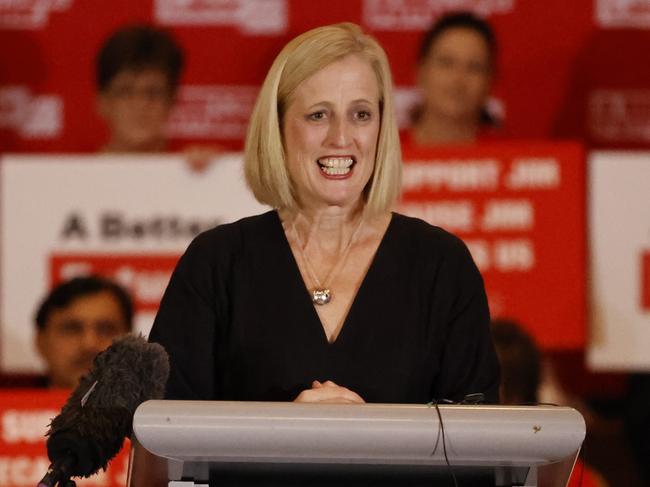Post-election pay rises for public servants
The Coalition and the ALP are holding out the prospect of above-inflation wage increases for commonwealth employees.

Thousands of public-sector workers are in line to receive higher pay rises regardless of the election result, with the Coalition and the ALP both holding out the prospect of above-inflation wage increases for commonwealth employees from next financial year.
The Coalition on Sunday recommitted a re-elected Morrison government to linking public-sector pay to movements in private-sector wages for the next three years, while Labor pledged public sector wage increases that outpaced the consumer price index.
According to the Coalition’s budget forecasts, workers will receive a real wage cut this financial year but Treasury forecasts the wage price index will outpace the inflation rate for the next three financial years. Inflation is forecast to rise by three per cent next financial year.
A government spokesman said the Coalition’s policy introduced in 2020, which linked public-sector wage adjustments to the annual change in the private-sector wage price index would continue if the government were re-elected.
“This policy creates a direct link between private and public sector wage increases,” the spokesman said. “This policy means commonwealth public-sector employees will directly benefit from ensuring the government’s plan to strengthen the economy, create jobs and deliver private-sector wages growth succeeds. By removing the previous 2 per cent cap, APS wages can grow as private-sector wages grow.”

Labor finance spokeswoman Katy Gallagher said the government had zero credibility when it came to public-sector bargaining. and it was no surprise the Coalition was “crab-walking away from their flawed wage cap policy”.
“We will not be taking lectures from a tired old government that has gutted the capability of the public service over the past decade,” she said. “Labor‘s plan will be to engage with good-faith bargaining with the APS workforce, to drive productivity improvements in return for wage increases and manage the APS in a fiscally responsible way.”
According to the opposition, the government‘s current bargaining policies denied public-sector workers their right to seek improvements for improved performance and outcomes.
“Labor will take a different approach,” she said. “Labor believes in real wage increases underpinned by productivity growth and delivered through fair and genuine negotiations between employees, their representatives, and employers.”
The Community and Public Sector Union said the government’s approach to public-sector bargaining was “fundamentally broken, and locks in wage stagnation for Australian workers”.
CPSU national secretary Melissa Donnelly said “under the bizarre ‘mystery pay’ policy, public-sector workers are forced to vote on unknown pay rises capped at the private-sector wage price index”.
“As a major employer, the Morrison government should be using the public sector to drive wages growth,” she said.
“Instead, they have chosen to lock public-sector employees into a race to the bottom on wages with the private sector. The CPSU always has and continues to support a genuine bargaining process.
“That is not what is on offer under the Coalition’s approach to bargaining and Australian workers are suffering as a result.”
She said the union welcomed Labor’s commitment to change public-sector bargaining and ditch the unworkable private-sector wage price index cap.
“Allowing public-sector workers and their union representatives to genuinely negotiate real wage increases, the public sector can be a leader in driving wage growth for Australian workers in all sectors,” she said.
Australian Chamber of Commerce and Industry chief executive Andrew McKellar said “we must be careful not to overstate any link between public and private-sector wage outcomes”.
“The only way we are going to get sustainable wages growth across is by driving productivity gains. Until we improve our economic efficiency, we won’t see the stable and sustainable increase to wages the community is looking for,” Mr McKellar said.
“Any unsustainable minimum wages growth would likely risk the viability of businesses, particularly small businesses, and the jobs they sustain and create.”







To join the conversation, please log in. Don't have an account? Register
Join the conversation, you are commenting as Logout